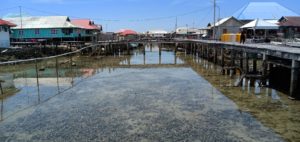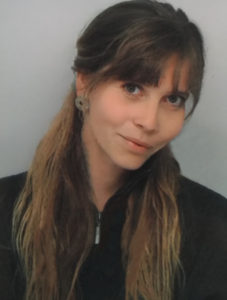This blog was written for the RSA Blog Student Summer Series that will highlight graduate student success in regional studies across the globe throughout the summer.
Extraordinary times call for extraordinary measures – Little did I know what influence the 2020 Covid-19 pandemic would have on my plans of conducting a case study to investigate cultural and environmental aspects of drinking water supply and treatment on Kaledupa Island, Indonesia. Due to the pandemic, traveling to the case study site to conduct the interviews in person proved to be unachievable for me, a German student studying at the University Centre of the Westfjords in Iceland.
However, driven by my interest in drinking water-related research, I still wanted to conduct the case study and decided to trial a form of distance-based participatory action research (PAR) in collaboration with a local organization and a research assistant (RA) in Indonesia. This enabled me to not only discuss the results of the case study but to also reflect critically on a research approach which is expected to gain traction in the future, when pandemics and climate change/ peak oil may further curtail global travel.
I analyzed the benefits and drawbacks of working with an RA which will help to refine methodologies such as distance-based PAR and enable researchers to be prepared for carrying out research during times when they are not able to travel to the research location, while maintaining the highly valued collaborative nature of PAR.

Mantigola Village on Kaledupa Island
Participatory action research (PAR) in brief
PAR is defined most simply as involving both researchers and participants working together to analyze a problematic action or situation in order to change it for the better. For this research, I collaborated with a non-profit in Indonesian focused on finding solutions for drinking water access issues. The Indonesian non-profit, Project Child Indonesia, builds tailored drinking water awareness campaigns for marginalized communities, as well as villagers in rural areas who co-modified the research process with the RA.
Carrying out participatory action research at-a-distance
Since I was not able to carry out the field work in person, I hired a RA sourced by the collaborating non-profit organization – with whom I had previously worked. Prior to the field work, the RA and I discussed the data collection – 60 interviews and 4 focus group discussions with participatory mapping elements were planned to be conducted in four villages on Kaledupa Island.
After discussing those methodologies, we adapted them in a collaborative process. Throughout the field work period, we communicated regularly to solve ambiguities and discuss interesting findings. The RA was able to conduct the planned number of interviews and focus group discussions within a few weeks. The RA then transcribed and translated the interviews and supported me during the data analysis period by giving additional information and explaining the context.
Lessons learned when working with a Research Assistant
My remote collaboration with an RA led to the following findings:
- When working remotely with an RA, it is important to understand differences in how hierarchy between the RA and researcher is viewed. The researcher must be aware of or find ways to assess those differences critically (be they cultural, gender or age-based or arising from an arrangement of paid employment).
- It is beneficial for the entire research process when previous relations with the RA and/or a local organization exist.
- Communication between the researcher and the RA on a regular basis is key to an active adaptative process that is integral to PAR research (ensuring that crucial adaptations are not overlooked or neglected).
Besides the complexity that the collaboration with an RA adds to the research process, the study concluded that it also offers diverse opportunities when conducting distance-based PAR. First, the risks of participants being excluded from the distance-based research due to lack of internet network ceases, assuming that the participants are not under strict lockdown conditions and the RA can conduct interviews and survey in person. Second, the collaboration with an RA and a continuous exchange of information allows the researcher to gain in-depth knowledge of the research context and thus enables the researcher to immerse in the research context to a large extent as well. Third, Through the collaboration with an RA, a different narrative is being added to the research (the one of the local RA), and cultural barriers that might hamper the research process are being minimized (by having a native Indonesian RA).
Additionally, the research process becomes environmentally more justifiable (by forgoing travel to the research location), and the local RA has the opportunity to participate in a knowledge building experience. As the collaboration with a RA seemed to offer many benefits to distance-based PAR, I anticipate that it will be considered and further evaluated as a relevant component of PAR in a distance context.

Nicole Sühring was born and raised in Germany. During her Bachelor studies in International Social Work she became interested in the Environmental social work approach. Since then, Nicole has completed several research projects on drinking water in rural communities in Indonesia with a strong focus on the social and environment aspects of drinking water supply and treatment.
Are you currently involved with regional research, policy, and development? The Regional Studies Association is accepting articles for their online blog. For more information, contact the Blog Editor at rsablog@regionalstudies.org.